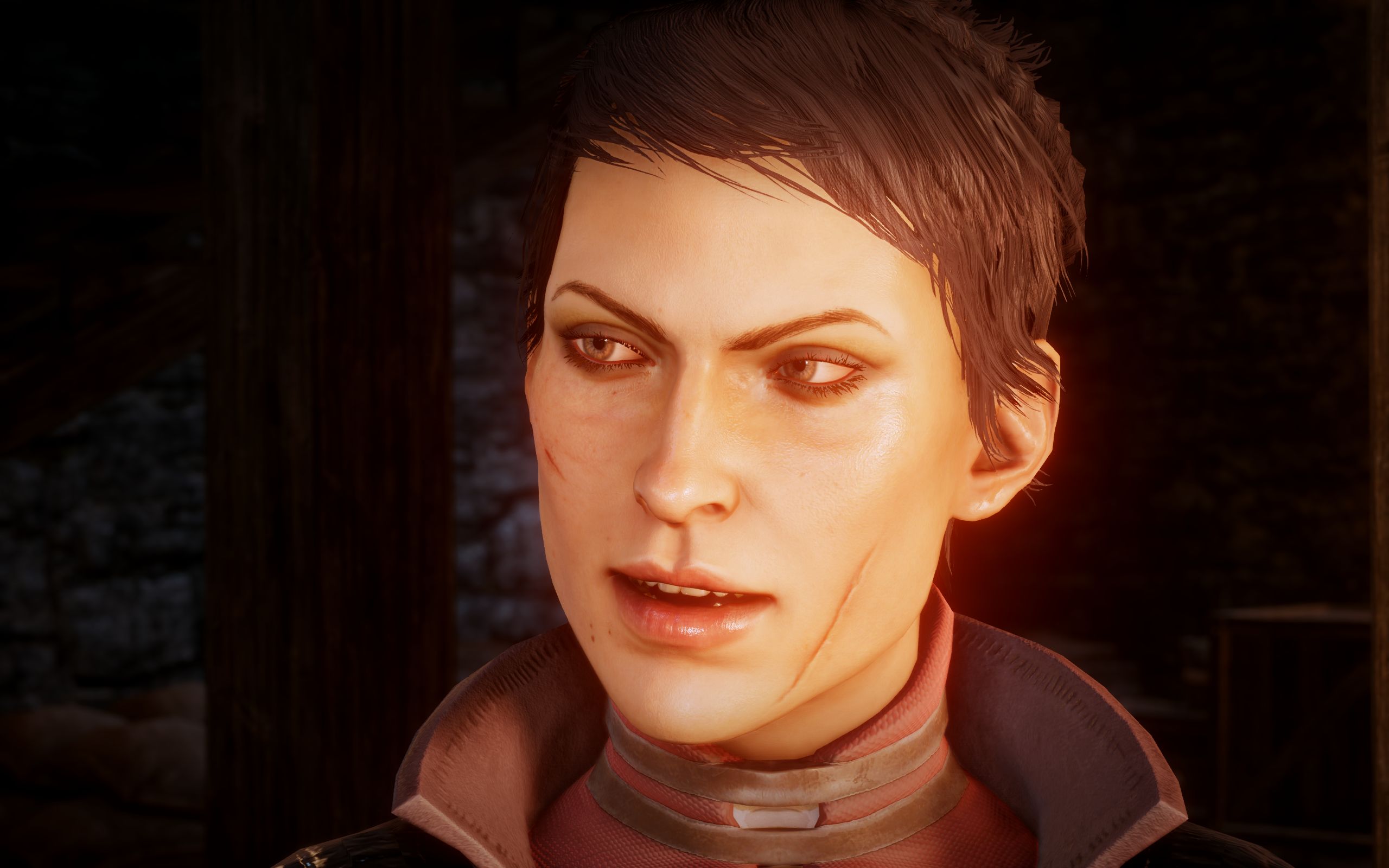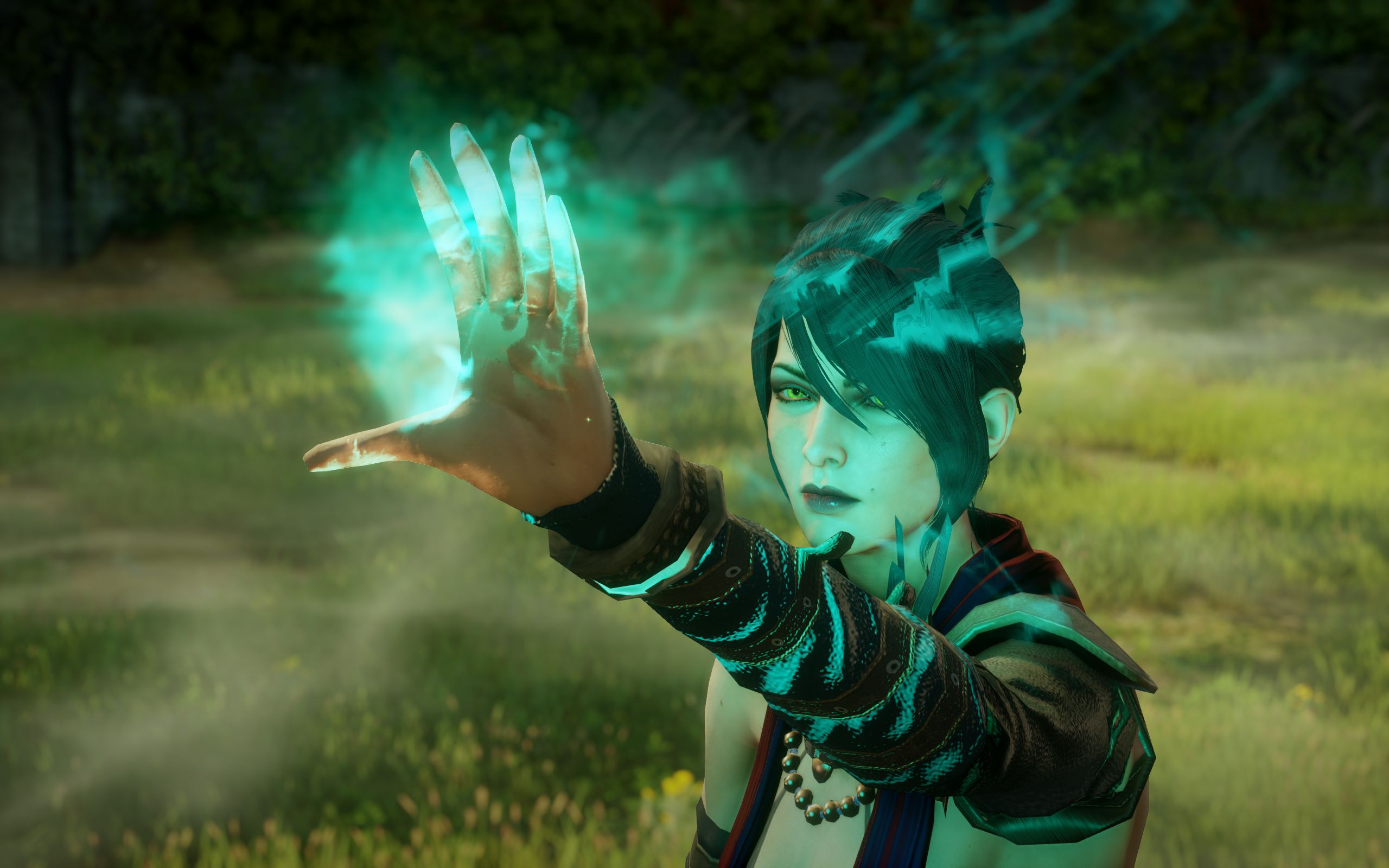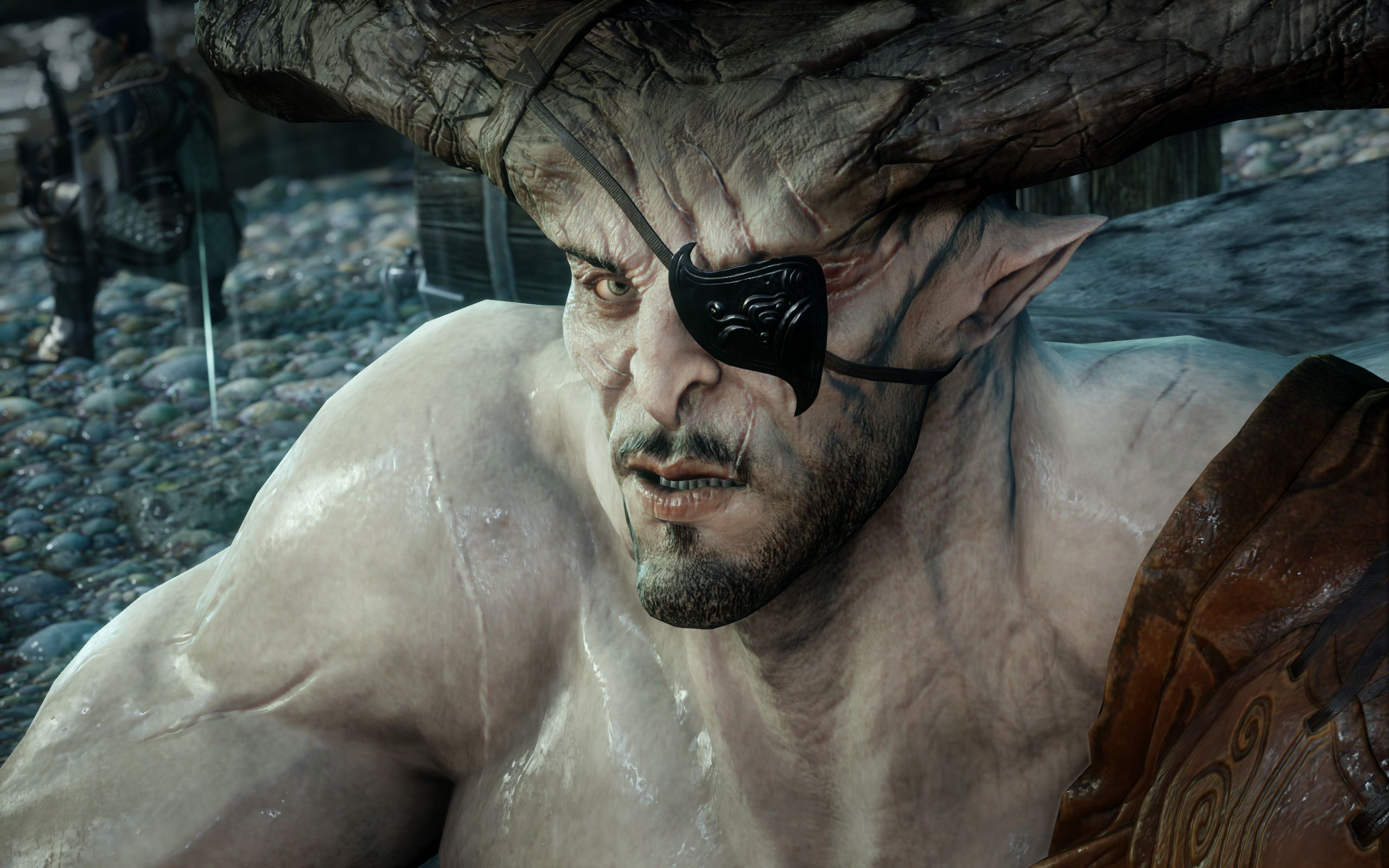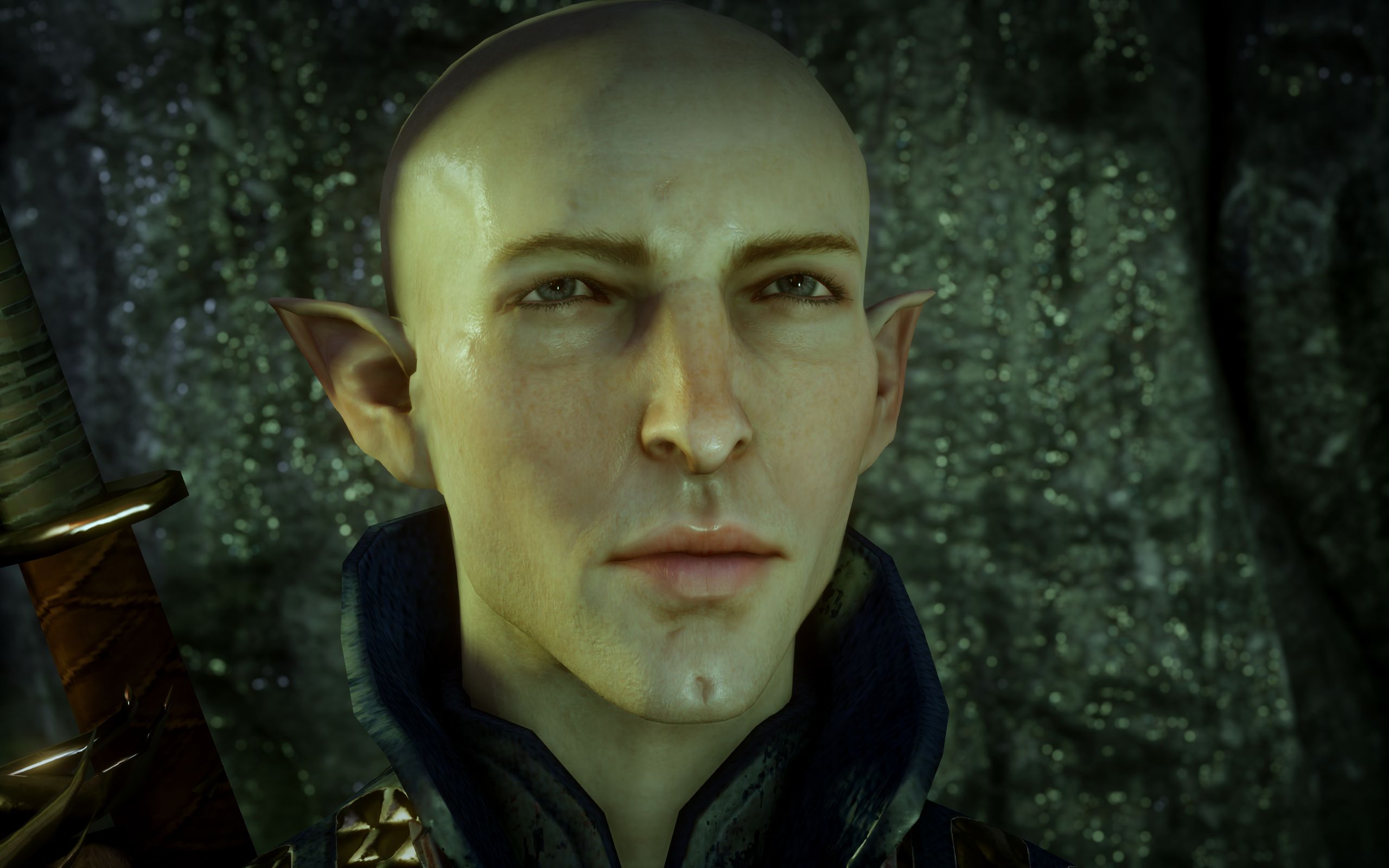Replaying Dragon Age: Inquisition has recalibrated my expectations for Dragon Age: The Veilguard
Looking at it in a new light.

I had a real good time with Dragon Age: Inquisition when it came out. So did a lot of people. It reviewed well, but it had the misfortune to come out six months before The Witcher 3, which rewrote everyone's expectations for what this kind of open-enclosure RPG could be. The Witcher 3 asks: "What if (some of) the sidequests were (almost) as good as the main quests?" Compared to that, zones full of collectible shards and connect-the-dots puzzles start to look pretty weak.
It's not an entirely fair comparison. Those smuggling caches Geralt hunted for were right out of a Ubisoft open world. I'd say they should get in the sea, but the problem is half of them are already there. And some of the "sidequests" people praised, like the Bloody Baron, aren't sidequests at all. That one's on the critical path. You can't skip it. It's a main quest, guys.
But it's true that Inquisition fills your journal with filler tasks like "collect three bear claws", and even when sidequests have a story to them it's usually nothing special. Still, while the timing of its release didn't do Inquisition any favors, it could have been worse. If it had come out when Mass Effect: Andromeda did, at the peak of "look at me, I've found a gif of a wonky animation" tweeting, it would have been mocked for that as thoroughly as Andromeda was.
In my current playthrough I've seen characters zipping back and forth at light speed in the background of conversations, and being flung into position from space as a cutscene begins. Hair clips through faces, fingers stretch when spells are cast, and smirks become horrible rictus grins whenever anyone says something that's been tagged as "snarky" in the scripting spreadsheet, then stay that way for the rest of the conversation like the wind has changed.

At the time we ignored that stuff for the same reason we did in all the better BioWare games: the writing. And even though this replay has found me less patient with open-world guff than I was in 2014, I still enjoy hearing Cassandra grumble and Dorian be debonair.
The Iron Bull is a particular favorite. A brash, straightforward, shirtless Qunari warrior who comes off like a bit of an adrenaline junkie, he seems to get along with every other character you bring along on your adventures. Even Vivienne the ice queen warms up to him when he starts deferentially calling her "ma'am."

The thing is, Bull's actually a spy. Though the Qunari network he works for is on your side, because it's hard not to be given the Inquisition's whole "save the world" remit, he remains a trained manipulator. It's just that he's a different flavor of manipulator to the charming scoundrels we're used to, and even when you know he's a spy it's easy to read his interactions on a more superficial level.
Keep up to date with the most important stories and the best deals, as picked by the PC Gamer team.
The same is true of Solas, who comes off quite differently on a replay when you know what his whole deal is. You can farm a lot of approval by letting him explain things, which is a nice way of incentivizing the player to listen to a lore dump. When Solas is talking about his trips to the dreamland called the Fade where he watches preserved events of historical and religious significance, his voice gains a singsong quality. Trick Weekes, who was the writer assigned to Solas's dialogue, said on a blog that they listened to the song Hallelujah on repeat while writing Solas, and it crept into these passages.
Solas doesn't actually say, "I've heard there was a secret chord / That David played and it pleased the Lord / But you don't really care for music, do you?" What he says has the same meter, though. "I've journeyed deep into the Fade / In ancient ruins and battlefields / To see the dreams of lost civilizations."

He repeats this pattern in several conversations, even ones where the dialogue wheel pops up and lets you interject. If you choose lines that continue the rhythm, that match his flow, you get that little pop-up: "Solas slightly approves." If you spot the secret motif of his dialogue and then choose responses specifically to maintain it, that smug egg gives you a single point of approval.
Yes, I romanced Solas. Yes, he broke up with me. No, that's not relevant.
What makes me feel positive about The Veilguard, at least compared to a lot of the responses to its trailers I've seen others have, is that Trick Weekes is back to write it. I don't expect the next Dragon Age game to have perfectly animated cutscenes, or sidequests that are as well-realized as the main ones, or even combat that's anything to write home about, because none of the previous ones did. (Not even Origins.) I do expect it to have an interesting bunch of companions and some well-written dialogue, because that's been true of Dragon Age across the whole series, despite its ups and downs, and that's the one thing I've always enjoyed about them.

Jody's first computer was a Commodore 64, so he remembers having to use a code wheel to play Pool of Radiance. A former music journalist who interviewed everyone from Giorgio Moroder to Trent Reznor, Jody also co-hosted Australia's first radio show about videogames, Zed Games. He's written for Rock Paper Shotgun, The Big Issue, GamesRadar, Zam, Glixel, Five Out of Ten Magazine, and Playboy.com, whose cheques with the bunny logo made for fun conversations at the bank. Jody's first article for PC Gamer was about the audio of Alien Isolation, published in 2015, and since then he's written about why Silent Hill belongs on PC, why Recettear: An Item Shop's Tale is the best fantasy shopkeeper tycoon game, and how weird Lost Ark can get. Jody edited PC Gamer Indie from 2017 to 2018, and he eventually lived up to his promise to play every Warhammer videogame.

